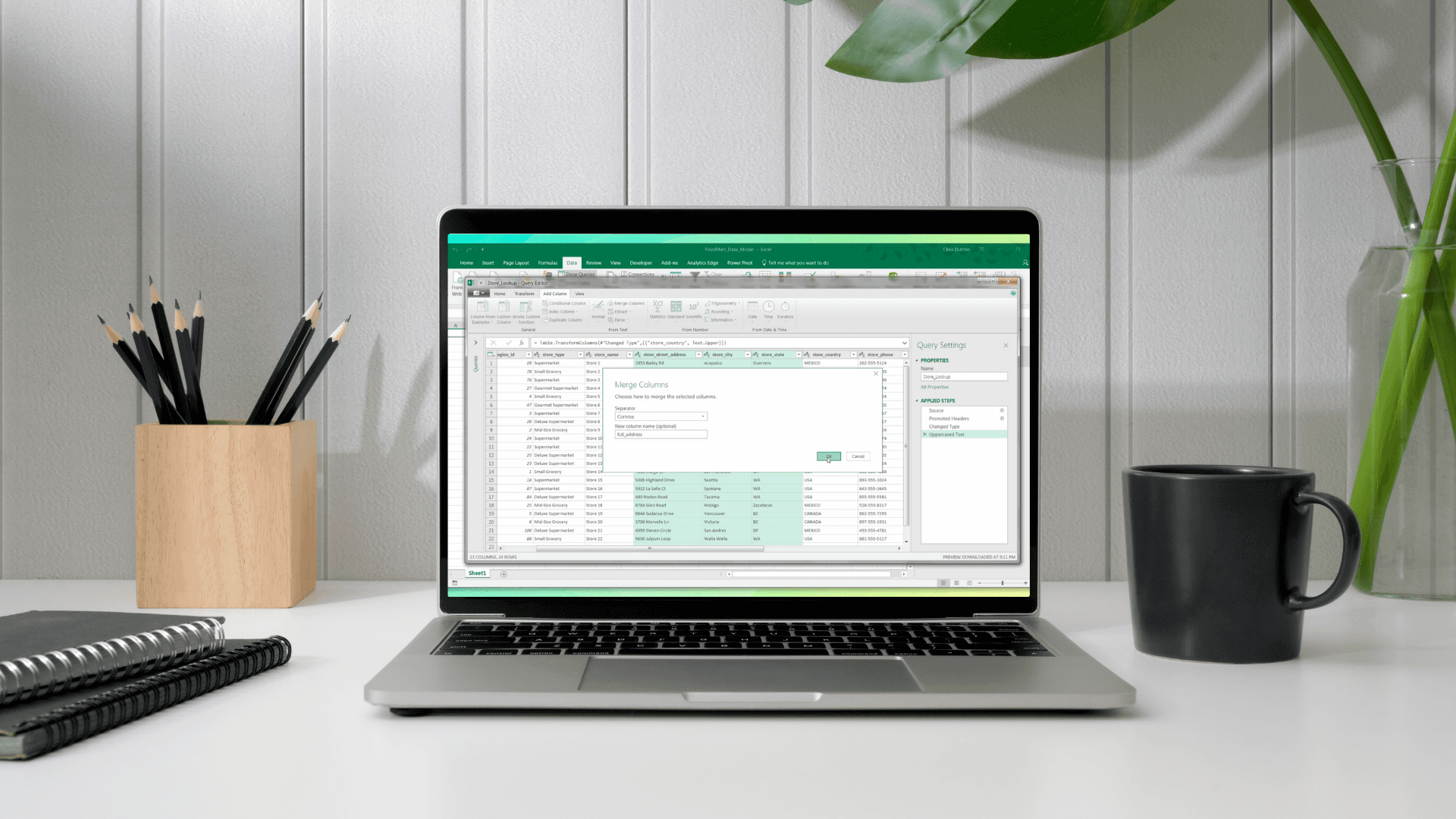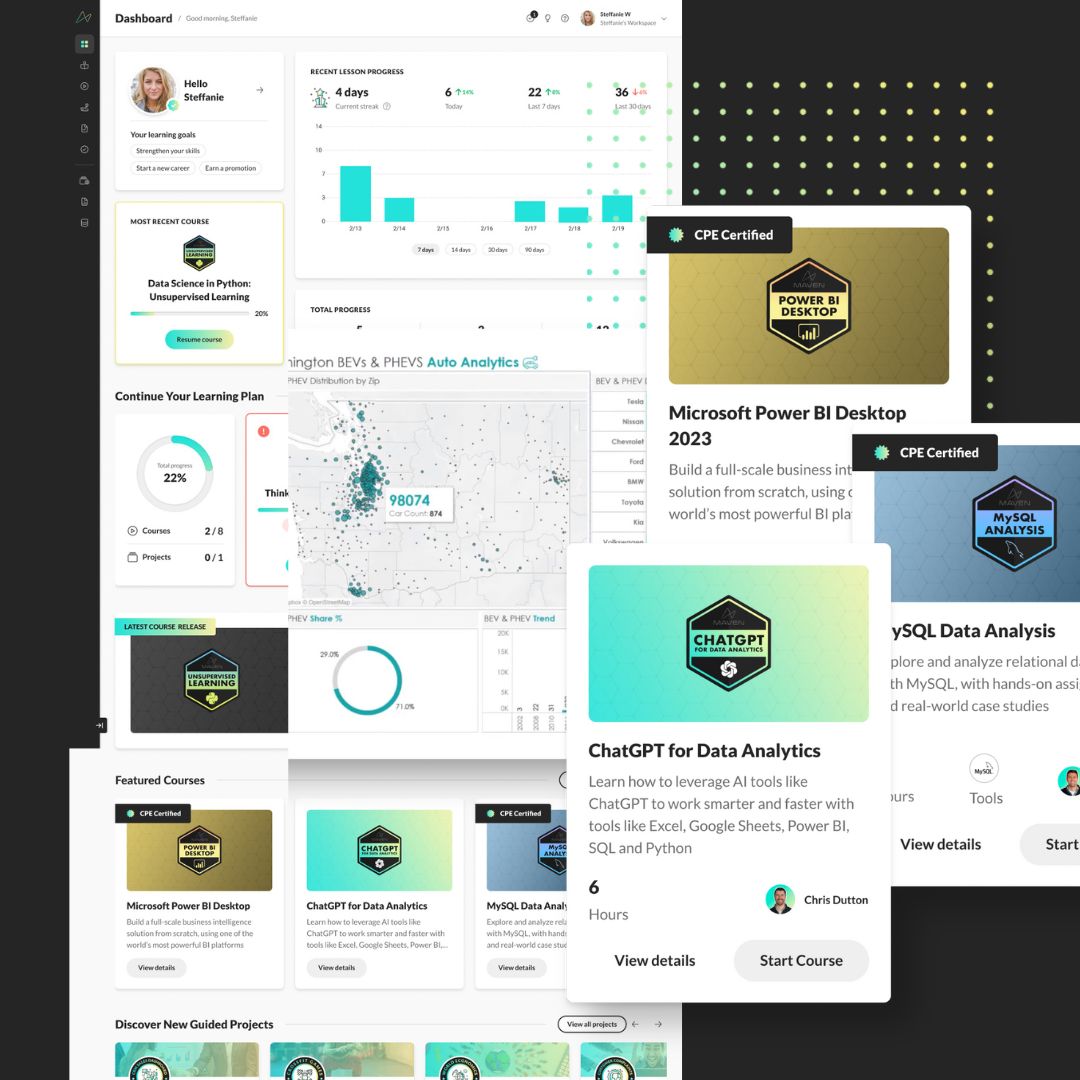Ever wanted to pick the brain of one of our data pros?
That recently became a reality thanks to our new subreddit, r/mavenanalytics!
On July 17th, John took the time to sit down and answer some of the community’s most pressing questions in a Reddit Ask Me Anything (AMA).
Here are some of John's responses that you may have missed from the session!
Starting Your Data Career / Getting Your First Data Job
If you have questions about landing your first data job, you are not alone! We see a lot of questions from job seekers, and John dug into a few of them during this session.
Is the job market for entry-level data analytics roles hard right now?
The short of it is yes, it’s a relatively tough market. There are economic headwinds, companies are being cautious about hiring, and because the career path is still pretty awesome if you can break in, there is a lot of competition.
So I’m not going to lie to you and say it’s a cake walk to land your first data role. But folks are doing it.
Here are some things that can help…
strong technical skills (focus on a couple of tools, don’t have to do everything)
actually doing some projects using data to solve business problems (this gives you actual practical experience and also gives you something to share/talk about during the application/interview process)
good communication skills… some people think this is a “you have it or you don’t” situation but that’s not the case. You can improve. Want to practice…ask ChatGPT what are some common behavioral questions and case study questions during a data interview. Then ask ChatGPT to evaluate your response and give you feedback
networking… meet similar people, learn from them, talk about what you’re learning, put your work on display, try to be in a position to hear about a role before it gets posted
looking good online / on your resume… make sure when someone sees you on paper or on LinkedIn they immediately see you as a fit and don’t toss your name out
Lot of stuff to think about here… like I said, it’s hard right now. But in my opinion it’s still worth it to break in
What do you look for in an analyst when you’re hiring?
Great question! There are a bunch of things I look for, and the quick read summary on all of them is "would I enjoy working with this person on the problems we need to solve?"
And my favorite way to assess this is with the case study method... so I give them a problem, and they talk me through how they would solve it. They talk out loud, they share their process, ask questions, use some real data or hypothetical data, and get toward the solution to a problem.
I like this one a lot because I can see how they communicate, how they think and problem solve, if they understand how the real world problems manifest in the data, how to use the data etc.
Technical skills matter too, but I would put them below this assessment, because they are easier to teach someone who fits well with the above.

When should I start applying for internships?
Apply now! Because it may take a while to hear back from recruiters. So you can keep building your skills while you wait to get an interview.
Learning how to network, find jobs, and apply is an important skill to start working on too. Most people who want data jobs are worried they “aren’t ready” but they almost always are.
So start now. Good luck!
Pivoting into Data, Especially for Experienced Professionals
Are you a career pivoter? We had some of those, too!
John dug deep into some very specific cases during this AMA, and there could be some real nuggets of wisdom that apply to your own journey here.
How can someone with a scientific background stand out in the data analytics field?
Really cool question! So I'll answer it a little more broadly - how can someone with [XYZ domain experience] stand out in Analytics?
I think the answer is figuring out which of the other skills you have from your other XYZ role could possibly be your superpower. Because a lot of your competition will not have that experience, so that could be your edge.
You're coming from science... could you look for analyst roles in a related field where you might have an advantage because of your domain expertise? Coming from science you might also be stronger in terms of stats, and in terms of experimental design, so you could lean into those for certain roles.
If you're coming from marketing... look for a marketing analytics role because you'll know more about channels and marketing processes than most other analyst candidates, so that's your edge.
So however you're thinking about your superpower...
A) think about which types of data roles specifically your superpower might be useful in
B) think about how to talk about any and all relevant experience where you used data in prior roles and frame it toward looking strong for the role you do want.
What are some tips for an experienced accounting and finance professional transitioning to a data analyst role?
Accounting and finance can be such an awesome background. Have worked with a bunch of people who have transitioned. Here's how you are awesome compared to your non finance/accounting peers...
I know you've got financial acumen
I know you're decent with numbers and understand how numbers relate to business
You're probably very good at Excel and looking at numbers in Excel
You can probably communicate well, especially about financial data
So from there, learn about some of the other tools and processes you might work with...
SQL
Power BI / Tableau
Python
Learn some data visualization best practices, and get good at taking a random data set you haven't seen before and answering the key business questions. You can grab data sets from Kaggle, Data.world or the Data Playground. Practice talking about the work you did, the insights you found, and what the business can do to improve based on your findings.
What could someone with a sales background bring to a data role outside of technical knowledge?
I would look into roles where the Analyst is going to be working with Sales team data. Lean into whatever domain knowledge you have, always.
For example, if they are supporting an Enterprise software company, looking at Saleforce data, building out dashboards, analyzing lead sources for close rates, looking at time to close, looking at specific sales rep performance.
So companies that sell a B2B product are going to be a better fit for your superpower, because you know more about the sales process than almost any other analyst out there. Use that.
The other thing that you're likely going to standout in is communication skills (hopefully, haha). Not all analysts are good here, but the great ones all are. Lean into that.
Essential SQL Skills for Entry-Level Data Analysts
As Maven’s resident SQL expert, of COURSE people asked John questions about SQL!
From how much SQL knowledge you need to get started in a data career to what kind of projects should be included in your portfolio, this was a treasure trove of information.
(There were also a few more specific questions shared in the session itself, so be sure to check them out!)
How advanced do you need to be with SQL before you apply for your first data role?
Love this question! The really short answer is, it depends on the role. More coming...
But the first thing I will say is it may take a while to get your first interview, so don't think you have to check all of the boxes to **apply. You can start applying very early, and while you're waiting to get an interview, you can keep practicing and improving your skills. So don't wait. Start trying to get your foot in the door way before you feel "ready".
I don't think CTEs are crazy complicated to learn once you have the fundamentals, so I would agree it makes sense to try and cover them. They can help you stand out. Window functions, too. They aren't as bad as they think, and they will come up a lot in interviews. CASE statements, too. Join types. Aggregate functions. I would recommend aiming to be pretty good with all of these.
Finally, some roles skew more toward the business acumen and communication side, and some skew more toward heavy technical skills. I've had both roles and can talk about what they look like.
In a huge company it's probably a more technical role, working with larger data sets. So your SQL or Python skills are going to matter more.
In a small startup, I would definitely prioritize problem-solving, communication, and business acumen more highly, because technical skills are easily taught.
What kind of SQL portfolio projects would catch your attention?
Great question! So I love seeing SQL in projects, but I hate when I see people LEAD with their SQL code. That's a recipe for losing your audience quick.
Instead do this...
Lead with the business problem you solved, in a quick 2 sentence max description (everyone can understand this... from business people, to other analysts/data scientists)
THEN, summarize your top 3 insights from the data, with visuals. This helps you communicate them, serves as some eye candy, and again, is something anyone can understand.
** notice how up until this point I have not recommended sharing any SQL code at all... you want to start by showing them what your skills can do for the business, THEN...
Finally, you can talk to them about your technical process, share your impressive code, etc. At this point, they have already seen how you solve problems and communicate, can picture how your results might impact their business, and now you can dazzle them with technical skills that would have caused them to glaze over earlier.
Navigating a Data Career
This AMA session really showcased the amazing opportunities out there in the data world.
John discussed some of the diverse roles available for data pros, previewing a few possible career paths and really highlighting how flexible it is to build a career tailored to YOU.
It may be his personal story that shines the brightest – if you’ve ever wondered what an established data pro would have done differently with their career, John has a great reflection here!
What does the career path of a data analyst look like?
The reality is there are tons of paths, which is one of the things I like most about data careers.
I used to think this was the path: Analyst > Sr Analyst > Manager > Director > VP > CDO/CAO (some places have these, others don't) and that the only way to progress was to manage larger teams of analysts.
But there are tons of paths.
Some people do follow that path I had in my head, but others do things like these...
pivot into data science (maybe staying individual contributors, or maybe running teams)
pivot into data engineering (again, maybe as an IC, or a manager track)
specializing in a specific tool like Power BI or Tableau and going really deep there as a data viz specialist
pivoting into other fields like Marketing (I did), Product (I did)
Being an analyst is a really good foundational role, because you learn how businesses can use data to be more successful, how that data is collected, stored, and analyzed, and how you need to use insights from that data to create positive change in an org. Those are skills that can serve you very well regardless of where you end up.
The flexibility of a data career is one of the coolest parts about it.
What did you get wrong in your career, and what would you do differently?
Early in my career, I foolishly thought my manager was responsible for thinking about what I should learn and what my career path should look like. Later realized no one else ever cares about your career as much you do (even the best, most benevolent managers), and the sooner you start taking charge of your own path the better. So you should own thinking about...
A) which skills you want to learn next
B) what you want your job to look like next year, 3 years from now
C) what your own personal skills and weaknesses are and how you should leverage them / develop them
I also tried to use Excel as a database for too long before learning SQL. In hindsight I wish I had done SQL earlier.
This one is very personal (not true for everyone). I was very glad I went to a big company for my first role in data. Got great training, learned from smart people, etc. Then the part I got wrong (again, for me personally) was not getting into startups earlier. I am a startup guy, but I didn't really find that out fully until about 8 years in.
Wrapping Up…
This AMA session was full of information to help you take the next step, wherever you may be in your data journey.
You can read the full AMA here, and if you’re experiencing FOMO, be sure to join us at r/mavenanalytics; we’ll have more AMA opportunities with familiar faces very soon!
REDDIT AMA ALERT!
This week you can join a LIVE AMA session with Chris and John on our subreddit, r/mavenanalytics!

Dakota Brown
Sr. Content Marketing Specialist







































